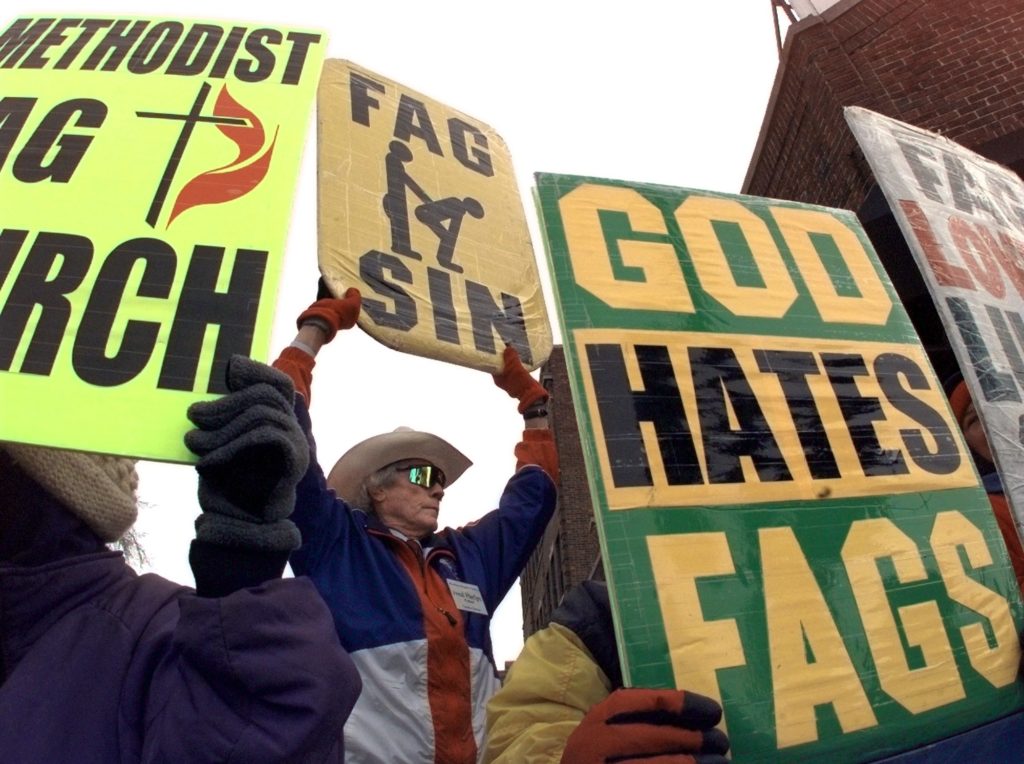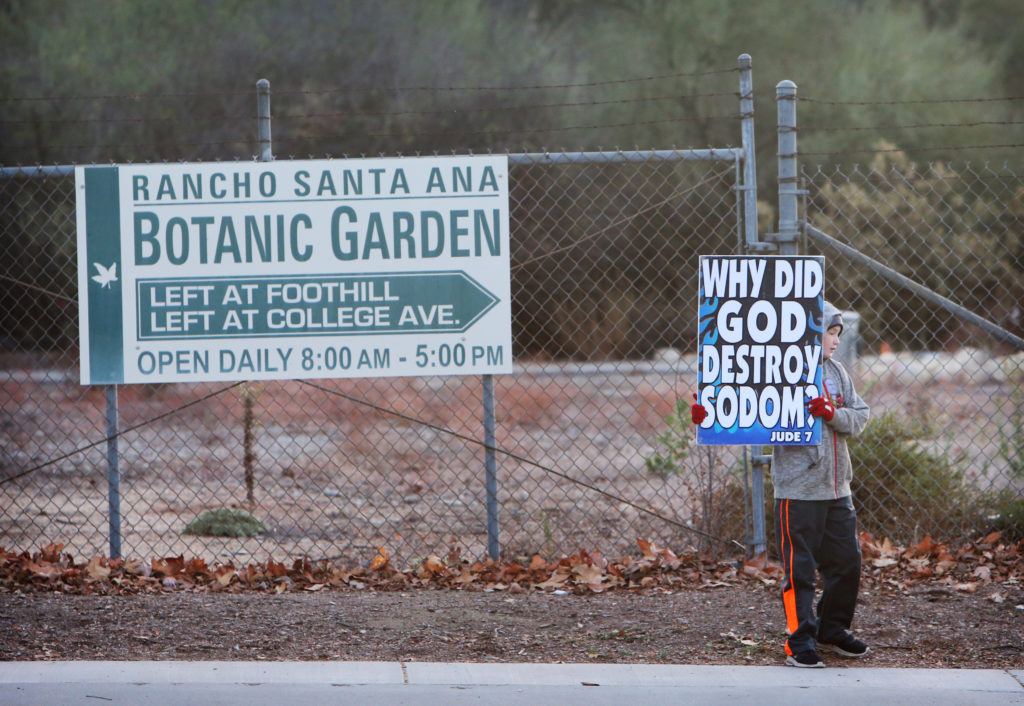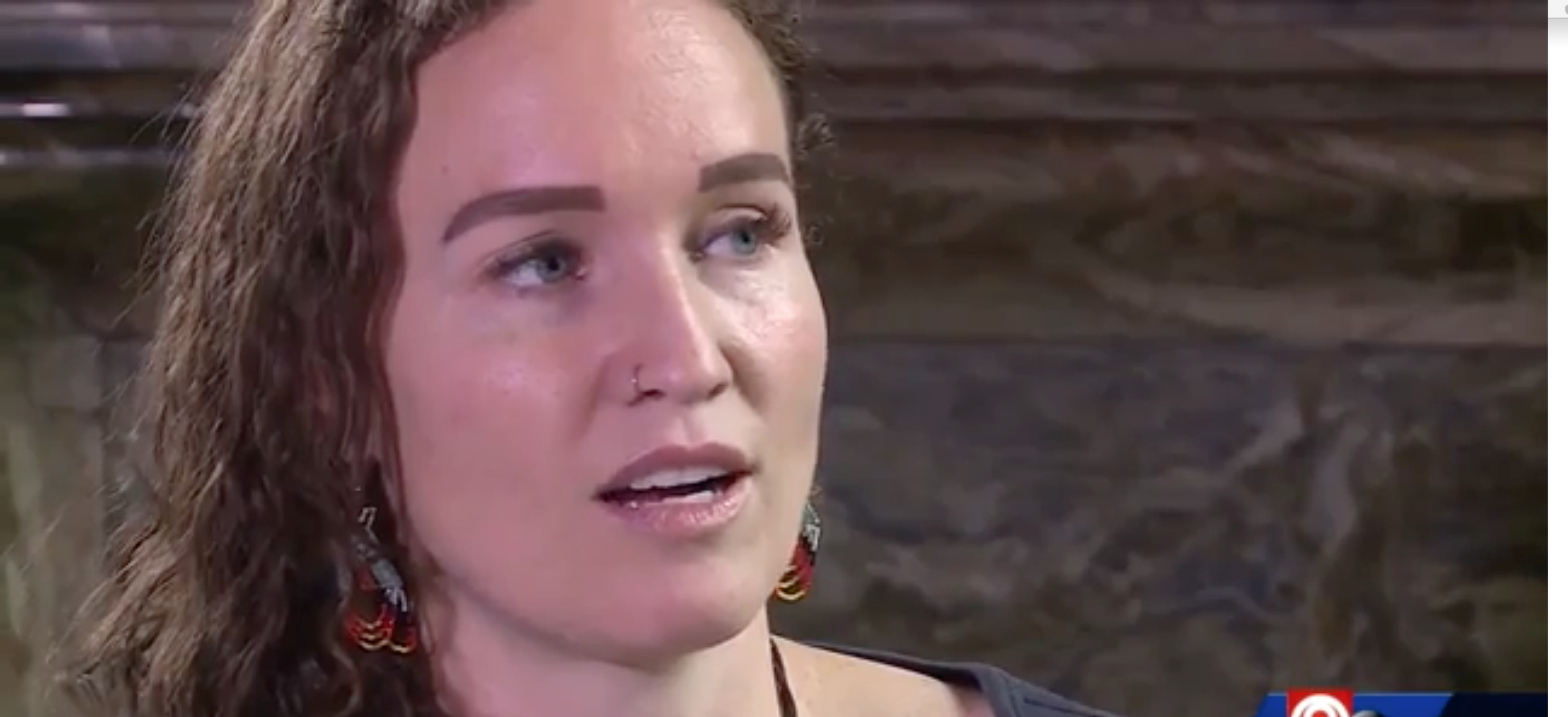Megan Phelps-Roper, the granddaughter of notorious homophobic hate preacher Fred Phelps Sr, has opened up about her “abusive” childhood in a revealing new interview.
Phelps’ Westboro Baptist Church, also known as “the most hated family in America”, became infamous for picketing military funerals with signs reading ‘God hates fags’ and ‘Thank God for dead soldiers’.
They would also picket the funerals of AIDS patients or hate crime victims in an attempt to shame the families of the dead.
The anti-gay church puts homosexuality at the centre of its sermons, claiming that everything from the death of soldiers, mass murders and natural disasters are God’s punishment for the existence of gay people.

Megan Phelps Roper grew up in the church but defected at the age of 27. In an exclusive interview with KBMC News, she gave an inside look at the “religiously rigid and, at times, physically abusive” church.
“It was abusive – there’s no question in my mind it was. Gramp’s policy was to beat first, ask questions later,” she said.
But a part of her childhood was loving, she insisted, even as she discussed being forced to carry hateful picketing signs at the age of five.
“We thought it was our duty to go and warn people of the consequences of their sins, and I understood that to be the definition of loving our neighbour,” she explained.
“We would always say the sign doesn’t say anything about our personal hatred as human beings – it’s talking about the hatred of God.”

It wasn’t until she matured and gained access to social media that she began to understand the true impact of the Westboro Baptist Church’s message, and her “steadfast, hardcore belief system” began to crack.
“The way it came into my mind was, ‘Oh my God, what if we’re just people? What if this isn’t the place led by God himself?’ And that realisation was staggering and completely destabilising.”
In 2012, Megan and her younger sister left the church behind for a new life. She has now renounced her faith entirely.
“I don’t believe in God anymore,” she told KBMC. “I don’t like to say I’m not a believer because I still feel like a believer in a lot of things, primarily hope and grace and the power of human connection.”
“But not God?” the interviewer asked.
“No,” she replied firmly.
